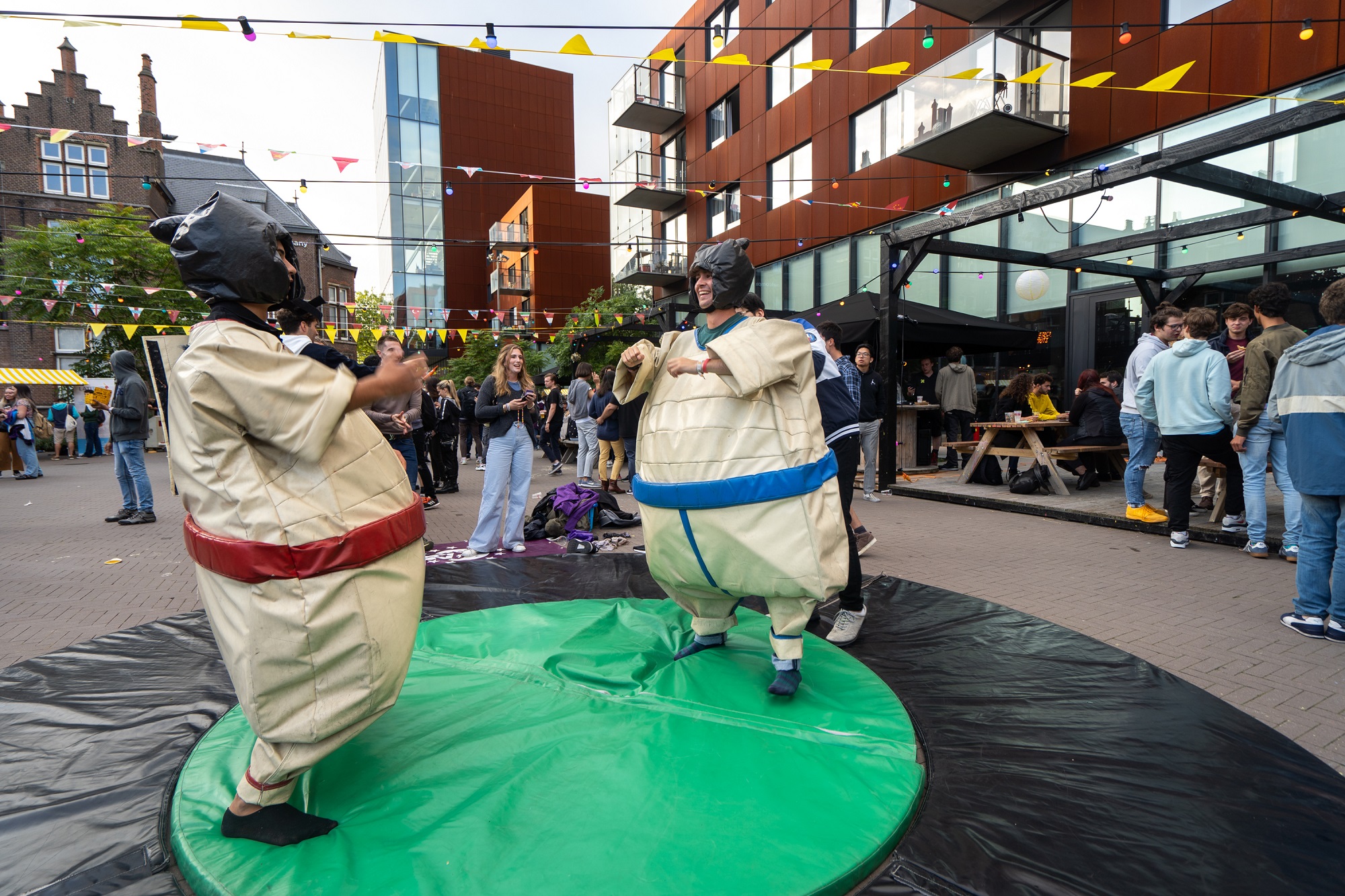Education Minister Dijkgraaf plans to use a combination of laws and agreements to manage the influx of foreign students. He also wants more control himself.
TU Delft welcomes international students, as seen here at the Base Festival 2021. (Photo: Justyna Botor)
On Tuesday 31 January, the House of Representatives discussed the large cohort of international students enrolled at Dutch universities, and specifically the question of how to limit further growth. For Minister Dijkgraaf, the debate came a too early, as he had already started writing a letter on internationalisation. This letter is likely to be complete mid-March.
Still, he was able to provide both a broad outline and some of his dilemmas. For him, the main question is “should there be a more centralised control?” According to the Minister, everyone can agree that rules and laws are needed for ensuring capacity control at degree programme level, like his plan to introduce an emergency brake system for programmes suddenly inundated with applications from outside of Europe.
But how do you ensure admissions are managed well? Because, Peter Kwint (SP) warned, before you know it, all programmes and institutions will consider themselves exceptions. Dijkgraaf agreed. This is why he is considering more centralised control. “Who will be in charge of how the exceptions are made, and how the controls are set?”, he asked the MPs. “It is of course totally understandable and valid that institutions are mainly focused on their own unique position in this matter, but we are currently discussing the sustainability of the system and not the sustainability of individual programmes or institutions.”
Pros and cons
After all, there are pros and cons to internationalisation, says Dijkgraaf. “Simply put, the focus of our strategy should be to increase the pros and limit the cons as much as possible.” His reasons for limiting the influx of foreign students include job market shortages, and he aims to pay special attention to contracting regions. “And aside from that, and this is very important and I fully support this: the notion that the Dutch language should remain a language of education and science.”
The MPs had already shared their positions on internationalisation at that time. Harm Beertema (PVV) repeated his plea to teach Bachelor’s degree programmes in Dutch again, “with a few well-chosen exceptions, and with the explicit statement that foreign students will still be welcome then”. Comparable statements were made by SP, CDA, SGP, JA21 and Pieter Omtzigt. Even D66, a huge internationalisation supporter, sees bottlenecks such as student housing.
Will there be legal amendments in support of policy? Maybe, but further down the line. Dijkgraaf is considering using the legislative proposal ‘Language and Accessibility’, that he had previously put on hold, as an intermediate step. This proposal allows degree programmes to set a fixed student number quota for non-Dutch tracks. One of the problems is that the legislative proposal states that the enrolment restrictions should be a temporary measure.
HOP, Bas Belleman
Translation: Taalcentrum-VU
Do you have a question or comment about this article?
redactie@hogeronderwijspersbureau.nl


Comments are closed.